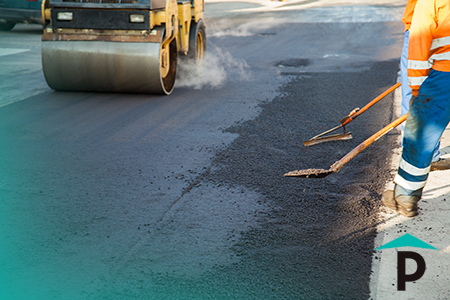There are lots of different surety bonds to factor in, which is why Pinnacle Surety is here to help. With our expertise, we provide information and estimates on everything from court to contract bonds. One area where people and establishments need us more than most is subdivision bonds.
Call: (844) 612-7238
Also known as improvement bonds, completion bonds, performance bonds or plat bonds, they are required by property owners or developers by cities, counties or other governmental/public agencies. Our bonds guarantee that improvements will be made to land within a subdivision of your choosing.
How They Work
Subdivision bonds transfer the burden of completing land improvements from the public entity to the property owner or developer. This is different from standard performance and payment bonds. Once the upgrades are completed, the ownership is transferred back to the public entity. In short, these surety bonds are a form of insurance. They guarantee the agency will recoup the money if the contractor fails to complete the job.
With our experienced and skilled in-house bond underwriters, there is no need to worry about the process. We will take care of everything and keep you informed throughout.
The Types Of Land Improvements?
They differ depending on the job type. However, they include, yet aren’t limited to the following:

- grading
- street improvements
- paving, curbs
- gutters
- sidewalks
- storm drains
- water mains
- sewers
- landscape
- erosion control, and
- subdivision monumentation
This isn’t an exhaustive list so it’s important to double-check whether the land improvement is classed as a subdivision bond beforehand.
What About Subcontractors?
It’s not unusual for governmental agencies to outsource multiple jobs to subcontractors. As a result, there may be dozens of people and companies that need recompensing should the contractor fail. These often include businesses and individuals such as laborers and material suppliers. Not only does a subdivision bond ensure the developer will fund and complete the improvements through a parcel of land, but it takes care of monies owed too.
Subdivision bonds include compensation which guarantees the payments so that the public entity isn’t vulnerable.
Who’s Involved?

Usually, there are three entities. They are the principle, the obligee, and the surety.
The principle is the contractor or the entrepreneur who purchases the bond in the first place. Generally speaking, you will be the principle. The obligee is the government agency. The surety is the establishment which secures the bond. In this case, that’s Pinnacle and our team of in-house bond underwriters.
Our job is to pay the costs should the contractor fail to finish the improvement work. However, that doesn’t mean the principle is off the hook. Due to the terms and conditions of the agreement, the surety bond company is liable to receive reimbursement from the contractor. Hopefully, this is the last resort because everyone involved wants to and plans to stick to the T’s & C’s. But, in case something goes wrong, this is what the principle can expect.
Are They Necessary?
The simple answer is yes. Any contractor or business owner looking to do business with a government entity won’t be able to agree to a deal without one. To reduce their liability, these agencies always demand some insurance to cover their backs. That’s why we have in-house bond underwriters: they’re essential in the early stages of an agreement.
And, it doesn’t stop at a surety bond either. As the principle, it’s essential to obtain the right permits and documents too, such as a subdivision map. Also known as a “plat,” this is granted by the relevant subdivision bond authority.
What Is Regulated?
The governing agency tends to deal with a variety of issues; however, the main one is the installation of public improvements. As a result of this condition, the subdivision bond authority stipulates things such as the actual improvements required. As well as that, they also sort out how much time the landowner or developer has to complete the project.
The Cost
One question on everybody’s lips is “how much does it cost?” The answer is set in stone because the amount varies. The total bond value may be calculated by the engineer’s estimate of the improvements. Or, it may be a percentage of the bond itself. Typically, this equates to around 3%.
But, it’s worth knowing that there are other considerations which will impact the price. For example, the terms and the size of the contract will play a major role. This shouldn’t come as a surprise as it’s quite obvious. What isn’t as clear is the fact that a principle’s history may be an issue. Work history and a credit score are two things which help surety bond companies to figure out the trustworthiness of a contractor.
The Length

Another factor is the length of the bond. It’s not realistic for it to last too long or to run out before the job is complete. Thankfully, the initial term for subdivision bonds is two years with a rolling one-year renewal. This provides the contractor with plenty of time and flexibility to finish the task in time.
When does it stop? It ends when the agency provides proof to the surety that the bond obligation has been satisfied. Until then, it continues to renew every year.
Who Will You Be Working With?
At Pinnacle, everything bond-related goes through Vanessa Copeland initially. She’s our brand flow manager and prepares the majority of the bonds which are issued daily. The contract itself will be underwritten by Steven Tyler, our underwriter. Don’t worry because he’s not a rock star – he’s an experienced professional with over 38 years worth of experience.
Before we get to that point, you first need to contact us for a quote. After all, project outlines and financial accounts to deal with, it’s tough to apply without help. Here at Pinnacle Surety, we offer our full range of resources to our customers to ensure they get the subdivision bonds they need to secure a job.
So, visit the website, call us now on (844) 612-7238, or email us at info@pss-inc.com.
Check out Pinnacle Surety on Social Media
We know it isn’t easy keeping up with industry trends and information—that’s why we’re here to help!
In our effort to support our partner and client initiatives, Pinnacle’s official Social Media channels are now up and running to provide company news, articles, blog updates, insider tips and thoughtful discussion!
We hope you’ll join us by giving Pinnacle a Follow on our Facebook and Twitter accounts and chiming in on the conversation! Have any questions, comments or concerns? Send us a PM on Facebook or give us Tweet at @PinnacleSurety.


